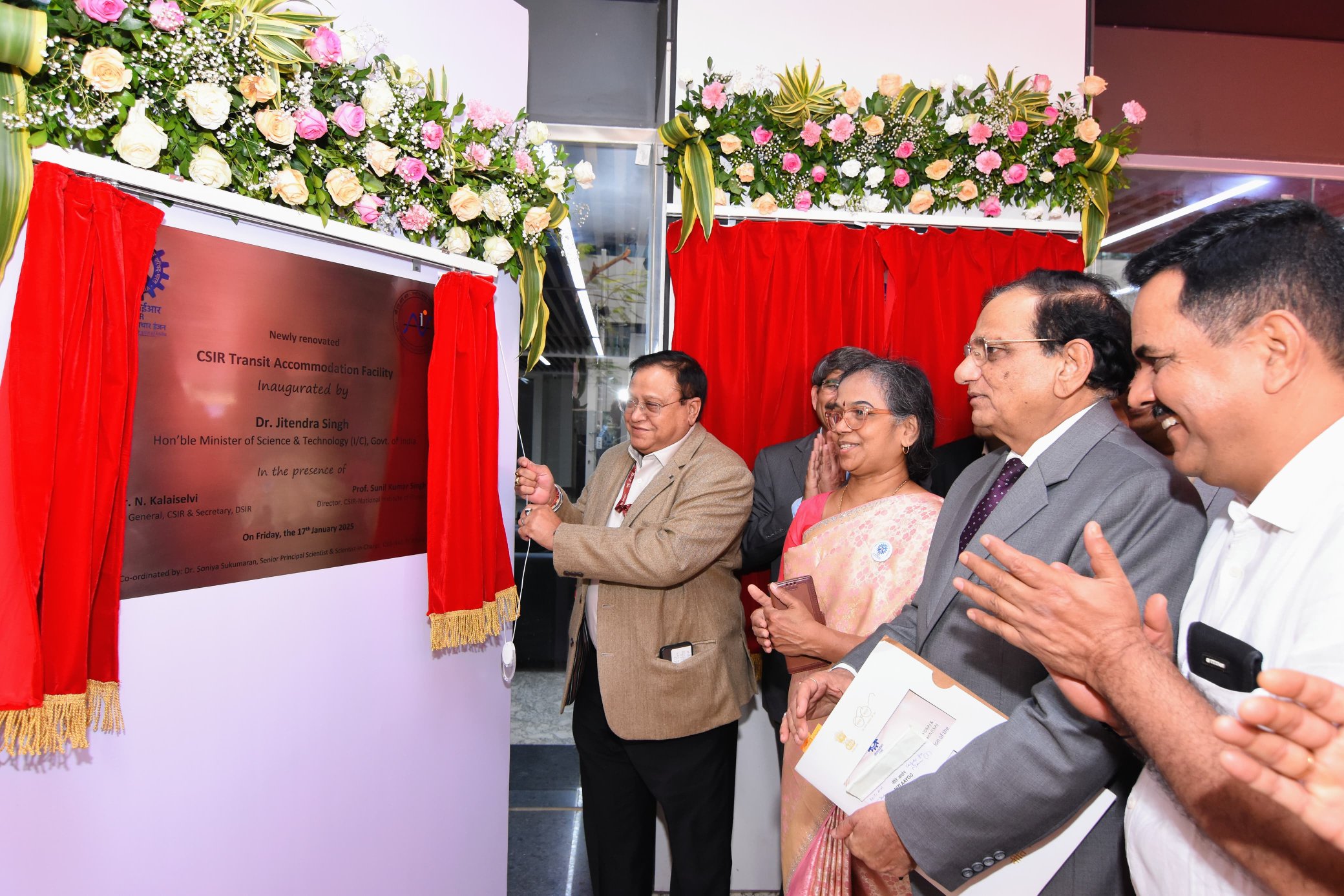India's First CSIR Innovation Complex Inaugurated in Mumbai: A Milestone for Startups and Self-Reliance
Dr. Jitendra Singh Launches State-of-the-Art Facility to Boost Innovation, Industry Collaboration, and Economic Growth.

- Country:
- India
In a landmark event, Union Science and Technology Minister Dr. Jitendra Singh virtually inaugurated India's first-of-its-kind CSIR Innovation Complex (IC-Mumbai) today. The facility, established by the Council of Scientific and Industrial Research (CSIR), aims to foster innovation, entrepreneurship, and industry collaboration while strengthening India's startup ecosystem.
Dr. Singh credited Prime Minister Narendra Modi's visionary leadership for enabling India to become a global hub for startups and innovation. He proudly highlighted that India now boasts the world's third-largest startup ecosystem, with over 100 unicorns symbolizing the nation's entrepreneurial dynamism.
“This remarkable growth reflects the transformative policies introduced by our government to empower the youth and promote economic self-reliance,” Dr. Singh stated.
Cutting-Edge Facilities for Startups and MSMEs
The IC-Mumbai, spread across nine floors, is equipped with:
- 24 ready-to-move incubation labs, each spanning 500 sq. ft.
- Fully furnished office spaces for startups, MSMEs, and industry partners.
- Six conference rooms and networking lounges, offering seamless collaboration opportunities.
The facility aims to address critical unmet needs in areas like lab-to-industry and industry-to-market technology transfer, benefiting startups, MSMEs, and CSIR labs nationwide.
Dr. Singh emphasized that IC-Mumbai would also serve as a hub for innovation, enabling technology transfer to industries and catalyzing faster commercialization of new developments.
Strategic Collaborations and Breakthrough Initiatives
To bolster innovation, six Memoranda of Association (MoAs) were signed between CSIR and premier institutions such as IIT Bombay, iCreate, and the National Research Development Corporation (NRDC). Additionally, 50 technology transfers were executed between CSIR labs and startups, MSMEs, and institutions.
Dr. N Kalaiselvi, Director General of CSIR, lauded the institute’s achievements, citing examples such as:
- Development of India’s indigenous Paracetamol.
- Introduction of the Zero Liquid Discharge Plant, a first in the country.
- Adoption of steel slag technology in constructing five national highways. She also highlighted CSIR’s global partnerships with countries like Germany, Norway, and Switzerland, driving collaborative innovation.
Dr. Kalaiselvi described the Purple Revolution as a symbol of indigenous technological advancements, reiterating the commitment to ‘Aatmanirbhar Bharat’ (Self-Reliant India) and the goal of ‘Viksit Bharat @2047’ (Developed India by 2047).
COVID-19 Contributions and Future Goals
Dr. V.K. Paul and Dr. V.K. Saraswat, members of NITI Aayog, praised CSIR’s contributions during the pandemic, particularly the development of:
- CRISPR-based diagnostic tests, the first in the world.
- Cost-effective oxygen concentrators deployed nationwide.
Dr. Saraswat emphasized the need to take innovation directly to industries, leveraging India’s cost-effective solutions for global advantage.
Impact and Vision
Dr. Ram Vishwakarma, the driving force behind the complex, described the facility as a critical enabler for startups, MSMEs, and academic collaborations. He reiterated its role in nurturing technological advancements and fostering innovation.
Dr. Singh concluded by highlighting the facility’s transformative potential, saying, “Facilities like IC-Mumbai embody the spirit of collaboration, inclusivity, and innovation that drives our nation-building efforts.”
With this groundbreaking initiative, India takes another significant step toward strengthening its innovation ecosystem, paving the way for a self-reliant and prosperous future.










